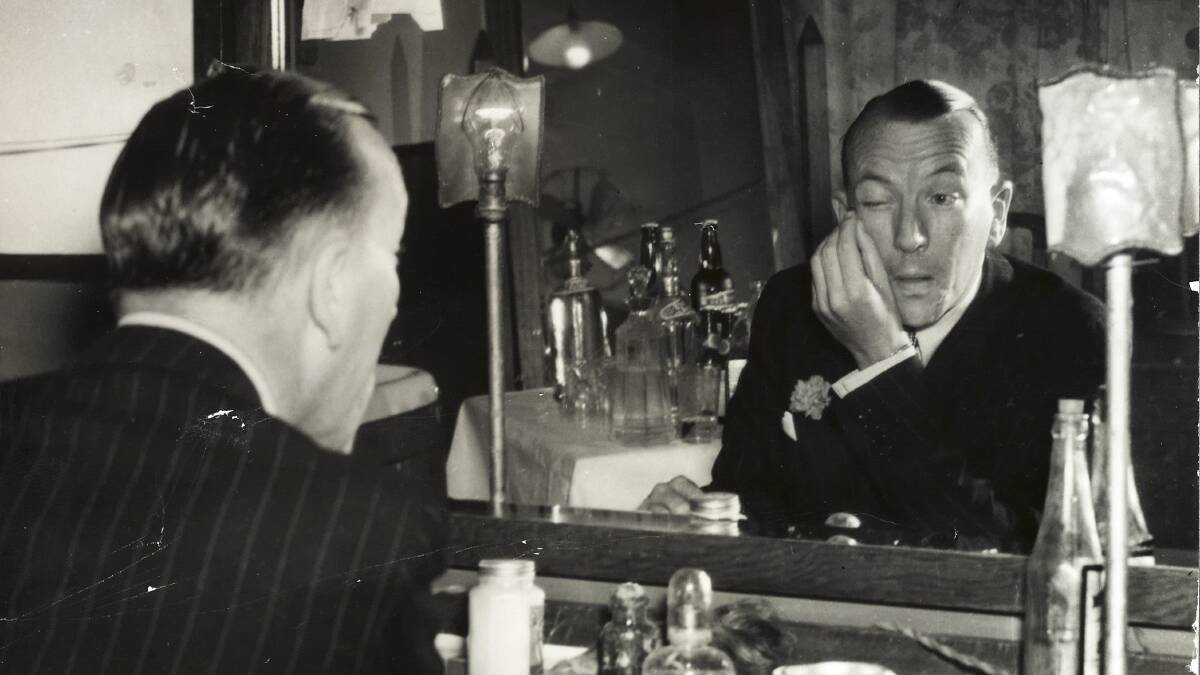Mad About the Boy: The Noel Coward Story.
PG. 91 minutes.
Three stars.
What a singular individual British actor and playwright Noel Coward was - probably still remembered today because of the frequency that amateur theatre companies continue to stage his plays. like Blithe Spirit and Private Lives.
BBC Films produced this documentary written and directed by Barnaby Thompson celebrating Coward's life and legacy, and I walked out informed about what I realised were great big gaps in my pop-culture knowledge.
But I also walked out a little apathetic about the filmgoing experience because, as the film's subject remained so intentionally aloof his whole life, the film is emotionally uninvolving.
By his own admission (throughout the film Rupert Everett voices passages out of Coward's three autobiographies), Coward wore so many masks that, even after 90 minutes of a film exclusively about him, I didn't necessarily feel like I knew him, I only knew about him.
Coward was a wit, a raconteur, the ultimate television talk show guest and Thompson's documentary is peppered with archival footage of Coward's many interviews and appearances and in every one he responds to serious questions with pithy zingers.He'd be a great dinner party guest, but I did think it would be refreshing to just get a straight answer out him, just once.
In our more pop-psychology aware day and age we understand is deflection, and Coward was a man who created his own artifice to hide in plain sight. Coward grew up on the poor side of the tracks but became his family's meal ticket when he displayed a precocious talent for the stage and appeared in dozens of productions on London's West End. His first big success as playwright and lead actor came with The Vortex in 1924 and Coward adopted his character's playboy persona for much of the remainder of his life. Behind the persona of the gravel-voiced champagne-swilling man-about-town, Coward could hide his homosexuality, verboten in an age where the act was illegal and imprisonable.
But British society seemed, for the most part, happy to pretend along with Coward's bon vivant, because the man was just so darned talented.
Coward made the jump to Broadway and then to the big screen with friend David Lean directing three films written by Coward.He was also a noted composer, though not a reader of musical notation, and struck a chord with British audiences during the Second World War with patriotic ditties London Pride and Don't Let's Be Beastly to the Germans.

The film's real revelations were in the undercover war work Coward was commissioned to do on behalf of Britain's secret service agencies, setting up a spy network in Paris, and touring the US where he was to sow the seeds for American involvement in the conflict.
Coward was the progenitor of our contemporary social media influencer, investing decades into creating his own self image, and so it stung Coward to have to quietly wear the negative media attention he got for his top secret spy work, appearing to all like he was fiddling while Rome (literally) burned. Both the Queen (later the Queen Mother) and Lord Mountbatten were aware of and grateful for Coward's pro-British spy work, and also aware that Winston Churchill torpedoed a proposed Knighthood for Coward because of the prime minister's dislike for homosexuals.
Thompson races at a cracking pace through the first few decades of Coward's life, the film's short duration leaving little time for an analysis of much of the prolific artist's many works. In the film's second half we get glimpses of a more self-reflective man, no longer popular at home and exploring a career between Las Vegas nightclub shows and a relaxed life in Jamaica.

